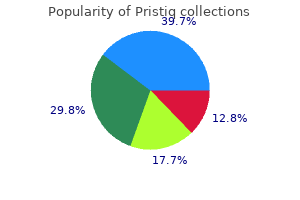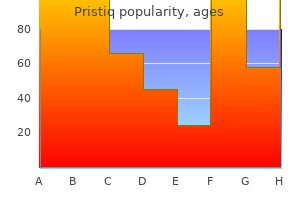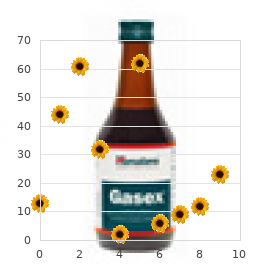"Discount 100mg pristiq visa, treatment effect".
By: B. Agenak, M.B. B.CH. B.A.O., Ph.D.
Associate Professor, Saint Louis University School of Medicine
Seemann wrote me word that they make pets of the flying fox (bat) symptoms quotes pristiq 50 mg online, the lizard symptoms enlarged spleen generic pristiq 50 mg with amex, 180 galton shinee symptoms buy discount pristiq on line. One of our officers unfortunately on one occasion shot a pigeon medicine 8 iron stylings order pristiq with amex, which caused great commotion, for the bird was a king pigeon, and to kill it was thought as great a crime as to take the life of a man. These pets were kept in large holes, two or three feet deep, partially filled with water. It is the parable spoken by the Prophet Samuel to King David, that is expressed in the following words "The poor man had nothing save one little ewe lamb, which he had bought and nourished up: and it grew up together with him and with his children; it did eat of his own meat, and drank of his own cup, and lay in his bosom, and was to him as a daughter. Not only do savages rear animals as pets, but communities maintain them as sacred. The ox of India and the brute gods of Egypt occur to us at once; the same superstition prevails widely. The quotation already given from Pigafetta is in point; the fact is too well known to readers of travel to make it necessary to devote space to its proof. It is forbidden under penalty of death to kill, wound, or even strike one of these sacred serpents, or any other of the same species, and only the priests possess the privilege of taking hold of them, for the purpose of reinstating them in the temple should they be found elsewhere. It will be found on inquiry that few travellers have failed altogether to observe them. If we consider the small number of encampments they severally visited in their line of march, compared with the vast number that are spread over the whole area, which is or has been inhabited by rude races, we may obtain some idea of the thousands of places at which half-unconscious attempts at domestication are being made in each year. These thousands must themselves be multiplied many thousandfold, if we endeavour to calculate the number of similar attempts that have been made since men like ourselves began to inhabit the world. My argument, strong as it is, admits of being considerably strengthened by the following consideration: - the natural inclination of barbarians is often powerfully reinforced by an enormous demand for captured live animals on the part of their more civilised neighbours. A desire to create vast hunting-grounds and menageries and amphitheatrical shows, seems naturally to occur to the monarchs who preside over early civilisations, and travellers continually remark that, whenever there is a market for live animals, savages will supply them in any quantities. The means they employ to catch game for their daily food readily admits of their taking them alive. If the savage captures an animal unhurt, and can make more by selling it alive than dead, he will doubtless do so. A savage is obliged to steal upon his game, and to watch like a jackal for the leavings of large beasts of prey. Consequently, the savage is a good gamekeeper; captured animals thrive in his charge, and he finds it remunerative to take them a long way to market. The demands of ancient Rome appear to have penetrated Northern Africa as far or farther than the steps of our modern explorers. The chief centres of import of wild animals were Egypt, Assyria (and other Eastern monarchies), Rome, Mexico, and Peru. The modern menagerie of Lucknow is the only considerable native effort in those parts with which I am acquainted. Live beasts are the one article of curiosity and amusement that barbarians can offer to civilised nations. There were also curious animals of the Mediterranean Sea, which the King of Egypt sent as a gift and entrusted to the care of men of their own land. The very choicest animals were there in abundance, and birds of heaven with galton. I will quote one instance from Gibbon: "By the order of Probus, a vast quantity of large trees torn up by the roots were transplanted into the midst of the circus. The spacious and shady forest was immediately filled with a thousand ostriches, a thousand stags, a thousand fallow-deer, and a thousand wild boars, and all this variety of game was abandoned to the riotous impetuosity of the multitude. The tragedy of the succeeding day consisted in the massacre of a hundred lions, an equal number of lionesses, two hundred leopards, and three hundred bears. In another court there were cages containing every kind of birds of prey, such as vultures, a dozen sorts of falcons and hawks, eagles, and owls. Our Spaniards were astonished at seeing such a diversity of birds and beasts; nor did they find it pleasant to hear the hissing of the poisonous snakes, the roaring of the lions, the shrill cries of the wolves, nor the groans of the other animals given to them for food.



While walking alone on his sixteenth birthday symptoms for bronchitis buy pristiq 50mg overnight delivery, Louie was ambushed by a giggling gaggle of cheerleaders symptoms 6 days after embryo transfer pristiq 50mg with mastercard. One girl sat on Louie while the rest gave him sixteen whacks on the rear treatment sinus infection purchase pristiq master card, plus one to grow on symptoms at 6 weeks pregnant buy pristiq with american express. When the school track season began in February, Louie set out to see what training had done for him. Competing in black silk shorts that his mother had sewn from the fabric of a skirt, he won an 880-yard race, breaking the school record, co-held by Pete, by more than two seconds. When he ran out of high school kids to whip, he took on Pete and thirteen other college runners in a two-mile race at Compton. Though he was only sixteen and had never even trained at the distance, he won by fifty yards. At the halfway point, he was an eighth of a mile ahead, and observers began speculating on when the boy in the black shorts was going to collapse. After he flew past the finish, rewriting the course record, he looked back up the long straightaway. Pete would dash back and forth in the infield, clicking his stopwatch, yelling encouragement and instructions. When Pete gave the signal, Louie would stretch out his long legs and his opponents would scatter and drop away, in the words of a reporter, " sadly disheartened and disillusioned. Then there would be autograph-seeking girls coming in waves, a ride home, kisses from Mother, and snapshots on the front lawn, trophy in hand. Louie won so many wristwatches, the traditional laurel of track, that he began handing them out all over town. Periodically, a new golden boy would be touted as the one who would take him down, only to be run off his feet. Running in what was celebrated as the best field of high school milers in history, Louie routed them all and smoked the mile in 4:21. Louise came anyway, sneaking to the track to peer through the fence, but the races made her so nervous that she had to hide her eyes. The Games had no mile race, so milers ran the 1,500 meters, about 120 yards short of a mile. Cunningham had been racing since the fourth grade, and at the 1936 Games, he would be just short of twenty-seven. But Louie was already the fastest high school miler in American history, and he was improving so rapidly that he had lopped forty-two seconds off his time in two years. In December 1935, Louie graduated from high school; a few weeks later, he rang in 1936 with his thoughts full of Berlin. The Olympic trials track finals would be held in New York in July, and the Olympic committee would base its selection of competitors on a series of qualifying races. In the meantime, he also had to figure out what to do about the numerous college scholarships being offered to him. The headliner in the 5,000 meters-three miles and 188 yards-was Norman Bright, a twenty-six-year-old schoolteacher. America would send three 5,000-meter men to Berlin, and Lash and Bright were considered locks. The mile was four laps of the track; the 5,000 was more than twelve, what Louie would describe as a "fifteen-minute torture chamber," well over three times his optimal distance. He had only twice raced beyond a mile, and the 5,000, like the mile, was dominated by much older men. He trained so hard that he rubbed the skin right off one of his toes, leaving his sock bloody. Each time one took the lead, the other would gun past him again and the crowd would roar. They turned into the homestretch for the last time dead together, Bright inside, Louie outside.

Regardless of their location treatment arthritis purchase pristiq 50mg otc, African-American women faced discrimination (Terborg-Penn 1985) symptoms glaucoma cheap pristiq on line. Even though the hours were long and the pay low in the occupations where Black women remained concentrated symptoms 0f low sodium purchase pristiq 100mg online, they did have more time to devote to their families and communities than that available to live-in domestic workers 2 medications that help control bleeding pristiq 100mg with visa. During the first wave of urbanization, AfricanAmericans re-created the types of communities they had known in their Southern rural communities (Gutman 1976). Racial segregation in housing and employment meant that African-Americans continued to live in self-contained communities even after migration to Northern cities. The cooperative networks that these women created under slavery and that they sustained in the rural South often endured. Black women domestic workers who rode buses together shared vital information essential to their survival. After 1945, a changing global economy in conjunction with the emergence of a new postcolonial, transnational context fostered significant shifts in Black civil society. Globally, numerous groups waged successful anticolonial struggles that resulted in new nation-states in Africa and Asia. When combined, these international and domestic political shifts greatly affected the relationship between work and family for African-American women. On the one hand, the period has been marked by substantial gains in formal political rights for U. Blacks acquired unprecedented access to education, housing, and jobs long denied under legal segregation. Blacks pursued a policy of gaining civil rights and equal treatment in housing, schools, jobs, and public accommodation. From this working-class "center," many Blacks experienced social mobility into the fledgling Black middle class. While many AfricanAmericans benefited from the changed legislative climate, many others did not. The downwardly mobile-those who lost their jobs and failed to find new ones-joined a growing population of poor Blacks that had been on the bottom all along. This growing group on the bottom, often referred to as the "Black underclass," was not the cause of Black economic disadvantage but, instead, constituted one outcome. During this period, Black civil society underwent considerable change, much of it influenced by gender-specific patterns of Black incorporation in an increasingly global political economy (Brewer 1993; Squires 1994; Wilson 1996). Black women could find work, but it was often part time, low paid, and lacking in security and benefits (Wilson 1996). Moreover, the introduction of crack cocaine in urban Black neighborhoods in the early 1980s incorporated men and women into the informal economy in gender-specific ways. Drugs became a major employer of young Black men, and young Black women looked to these men for financial assistance. Blacks grew up in communities that were markedly different than those prior to the 1980s. Blacks became more class stratified, the racial segregation in housing that fosters inequities of education and employment also persisted (Massey and Denton 1993). Many young Black men came to see their futures only in terms of being rap stars, basketball players, or drug dealers. Overall, young Black men and women could not see the optimism of the diverse antiracist social justice projects of the 1950s and 1960s but instead encountered the pessimism of shrinking opportunities. Black men and women, access to African-American intellectual and political traditions, feminist and otherwise, remained elusive. Instead, they found themselves living in impoverished economic and intellectual environments. As Black feminist sociologist Rose Brewer points out, "Capitalist firms do not have to depend upon black labor, either male or female.

Syndromes
- Diagnosing, treating, and managing diseases
- Use synthetic fabrics for clothing and household furnishings whenever possible. Disinfect bathrooms, basement walls, and furniture with diluted bleach or other disinfectant solutions.
- The procedure involves placing an ASD closure device into the heart through tubes called catheters.
- Dehydration - severe
- A drop or two of testing solution is added to the sample at the lab. A color change is a sign of blood in the stool.
- Bruising
- In emergencies, a blood transfusion may be needed.
- Women who have had a total hysterectomy (uterus and cervix removed) may choose not to have Pap smears.
- Physical therapy

After two years medications dogs can take order generic pristiq canada, McMullen got his feet under him again medicine research pristiq 50mg discount, but he would never really recover medications zanaflex order 50 mg pristiq visa. Recounting his war experiences was so painful that it would leave him off-kilter for weeks medications questions cheap 100mg pristiq with mastercard. They carried unspeakable memories of torture and humiliation, and an acute sense of vulnerability that attended the knowledge of how readily they could be disarmed and dehumanized. Their dignity had been obliterated, replaced with a pervasive sense of shame and worthlessness. For these men, the central struggle of postwar life was to restore their dignity and find a way to see the world as something other than menacing blackness. There was no one right way to peace; every man had to find his own path, according to his own history. Louie loved her for being so sporting, and for choosing something so dear to his heart. It was the closest thing to peace that Louie had known since Green Hornet had hit the water. Cynthia was uncomfortable living there, and Louie wanted to give her the home she dreamed of. Like many elite athletes, he had focused on his sport throughout his school years and had never seriously contemplated life after running. Courtesy of Louis Zamperini He made no effort to find a real career or a nine-to-five, salaried job. He went to militarysurplus sales, bought Quonset huts, and resold them to movie studios. He did, however, earn a steady enough income to rent an apartment for himself and Cynthia. It was only a tiny place in a low-rent quarter of Hollywood, but Cynthia did her best to make it homey. At the end of his first day in the new apartment, Louie slid into bed, closed his eyes, and fell into a dream. Every night, he returned, and Louie was helpless once again, unable to flee him or drive him away. One day, with Cynthia standing by, holding a stopwatch, Louie set off to see how fast he could turn two miles. Early on, he felt a pulse of pain dart across his left ankle, just where it had been injured at Naoetsu. There seemed no reason not to drink, so each evening, he swigged wine as he cooked, leaving Cynthia sitting through dinner with a tipsy husband. Invitations to clubs kept coming, and now it seemed harmless to accept the free drinks that were always offered. He soon began drinking so much that he passed out, but he welcomed it; passing out saved him from having to go to bed and wait for his monster. Once he harassed a man for walking too slowly on a crosswalk in front of his car, and the man spat at him. Louie gunned the car to the curb, jumped out, and, as Cynthia screamed for him to stop, punched the man until he fell to the ground. Before he knew it, he was on the floor, cringing, as the bar fell silent and the patrons stared. On another night, he was drinking, his mind drifting, when someone nearby yelled something while joking with friends. In a moment the illusion cleared and he saw that, again, everyone in the bar was looking at him. One day Louie was overcome by a strange, inexplicable feeling, and suddenly the war was all around and in him, not a memory but the actual experience-the glaring and grating and stench and howl and terror of it. After that, if he caught a glimpse of blood or saw a tussle in a bar, everything would reassemble itself as prison camp, and the mood, the light, the sounds, his own body, would all be as they were, inescapable. In random moments, he felt lice and fleas wriggling over his skin when there was nothing there. Louie had no idea what had become of the Bird, but he felt sure that if he could get back to Japan, he could hunt him down. The Ministry of Home Affairs, frustrated at the failure to track down Mutsuhiro Watanabe, was renewing its effort, sending out photographs of and reports on the fugitive to every police chief in Japan.
Order pristiq 100 mg with amex. Sore Throat Home Remedies That Work For Strep Throat and Inflamed Throats.

